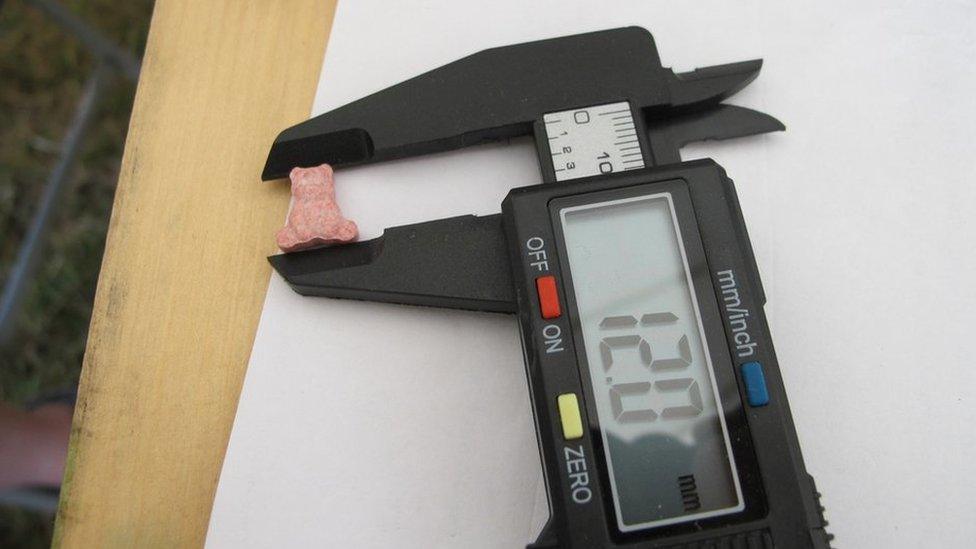UK festivals: What's going on with drug testing in 2023?
- Published

Parklife festival did not have back-of-house drug testing this year
Chloe was at a music festival last summer when word got out that a boy had been found dead in his tent from a suspected drug overdose.
Later that day, an alert went out on the festival's official app warning everyone about a batch of "fatally strong" MDMA pills, says Chloe (not her real name).
"All billboards around the arena had a message too telling everybody not to take them," she says.
Chloe believes that, because of all the warnings, nobody else at the festival was harmed that weekend.
What she's described is a result of drug checking.
It's been happening at UK festivals for about 10 years, and is a way to identify potentially deadly substances and warn people about them.
But Parklife boss, Sacha Lord, has told BBC Newsbeat the Manchester event couldn't have drug tests on-site when it took place in June.
He says they've done this since 2014, but he was told a special licence would be needed this year.
Sacha says the Home Office informed him just 48 hours before the start of the event, but the application process takes three months.
The requirements of the licence would have made it hard to carry out tests in a portable cabin - which is usually where festival testing is done - according to Sacha.
He says the festival previously worked with police and the local council to allow drug testing to go ahead, and accused the government of doing a "U-turn" on the issue.
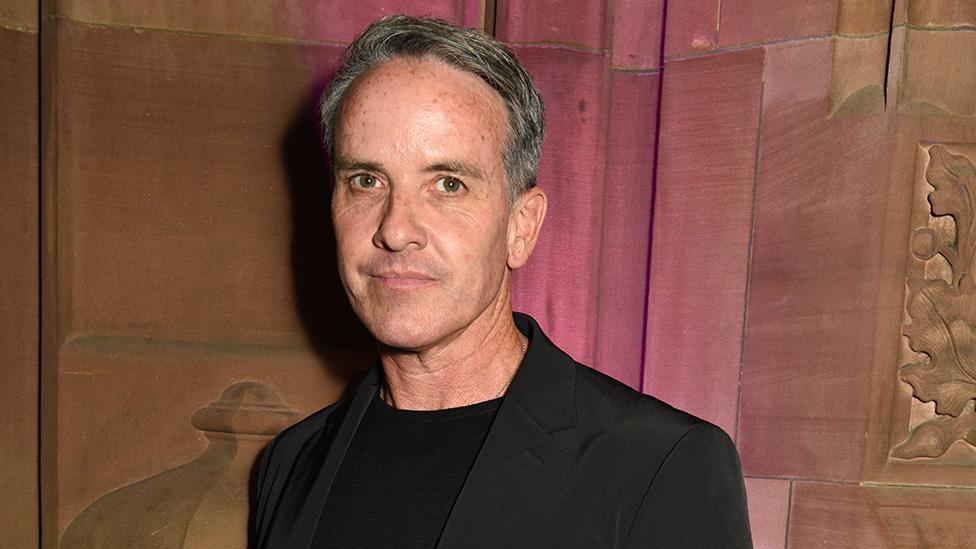
Sacha Lord says he's worried about the safety of festival-goers this year
Sacha, who's also Manchester's nightlife economy adviser to Labour mayor Andy Burnham, believes that this will affect other UK festivals this year.
"As it stands now, there is no testing this summer," he said.
"I am really, really concerned about the safety of many, many customers."
Sacha's since teamed up with the Night Time Industries Association (NTIA) - which represents businesses like nightclubs, bars and festivals - to threaten legal action against the government.
NTIA boss Michael Kill called for clarity and said the apparent "unexplained U-turn" could put lives at risk and have "considerable ramifications for the current festival season".
Newsbeat's since learned that Glastonbury, Reading and Leeds Festivals will be carrying out drug testing in 2023, as they have done in previous years.
But bosses of smaller festivals, like Sacha, have told us they don't think they'll be able to do the same and the government hasn't communicated well.
The Home Office says its position hasn't changed and testing has always required a licence.
How does festival drugs testing work?
Festivals are really keen to point out that they don't condone or encourage drug-taking.
Security and police will try to stop drugs getting in, but most agree it's almost impossible to stop it happening at all.
So many big UK festivals support a harm reduction approach, and on-site testing is a big part of this.
Most events do this "back-of-house" via a third party, using confiscated drugs or substances left in amnesty bins.
If testers find that something is potentially dangerous - stronger than usual, contaminated, or sold as something it's not - they'll put a warning out to festival-goers.
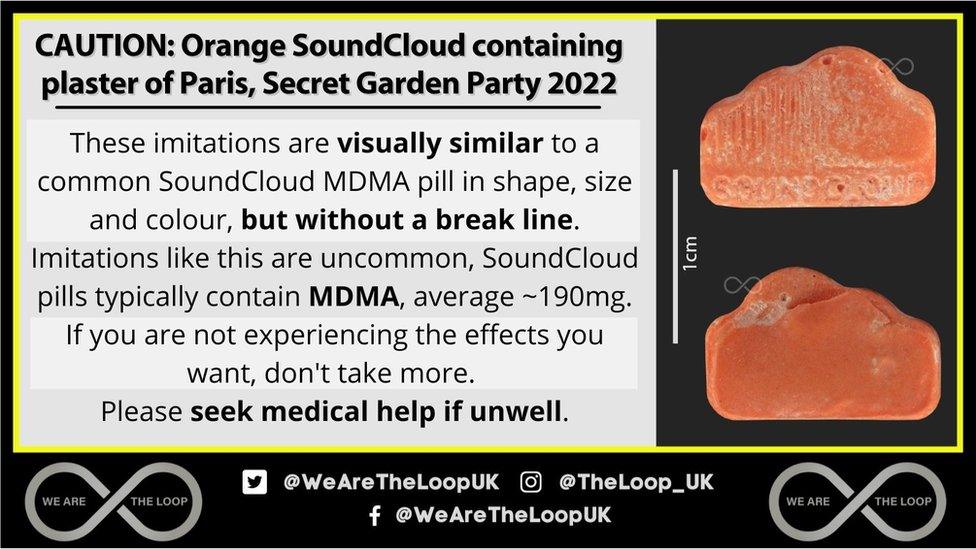
Warnings about troubling substances are often circulated
Studies by The Loop - which offers testing services at festivals - have suggested drug-checking can reduce deaths.
Another method, called front-of-house testing, is where people can take drugs to be tested to make sure they're safe.
It's been trialled but has less support from authorities. The boss of Leeds and Reading Festivals has previously said he was concerned it could give people false confidence.
'It's really scary'
Meg is a DJ who's worked on welfare teams at festivals with on-site drug testing and events without it.
"I've had some experiences before where I've been looking after 16-year-old girls who've taken way more than they thought they had," she says.
"Or that pill that they've taken is not exactly what they thought it was going to be.
"And it's really scary."
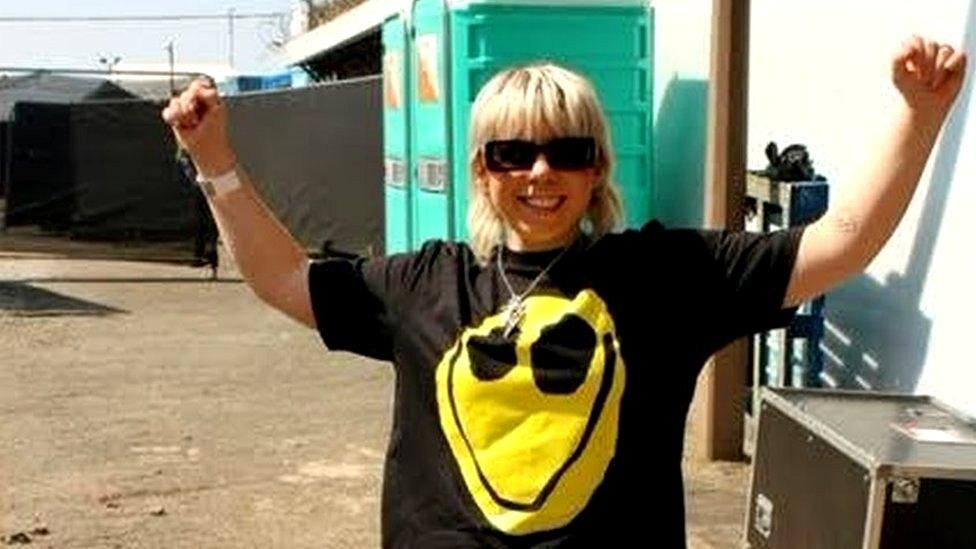
Meg says the information provided by testing teams is also useful to welfare teams at festivals
Meg says these situations are "massively reduced" when there's testing on-site because it means more information is available.
"And then we know how to deal with it," she says.
If the substance has been tested on-site the welfare teams will know if it's extra-strong or isn't what the person thought it was.
"Because there's plenty of times where that could happen and it can cause serious harm to the person who's taking the drug," says Meg.
Newsbeat asked the Home Office to respond to Sacha Lord's suggestion it had U-turned on back-of-house testing.
"Our position hasn't changed. Drug testing providers must have a licence to test for controlled drugs, including at festivals.
"We have consistently made this condition clear, and law enforcement have always had a responsibility to uphold this legal requirement.
"We continue to keep an open dialogue with any potential applicants. Festivals aiming to test drugs off their site this summer must work with the police and a Home Office licensed drug testing provider."
But Sacha says it's "ridiculous" to claim that nothing has changed.
The Loop - which has provided most back-of-house testing at UK festivals - told Newsbeat it couldn't comment.


Follow Newsbeat on Twitter, external and YouTube, external.
Listen to Newsbeat live at 12:45 and 17:45 weekdays - or listen back here.
Related topics
- Published12 June 2023
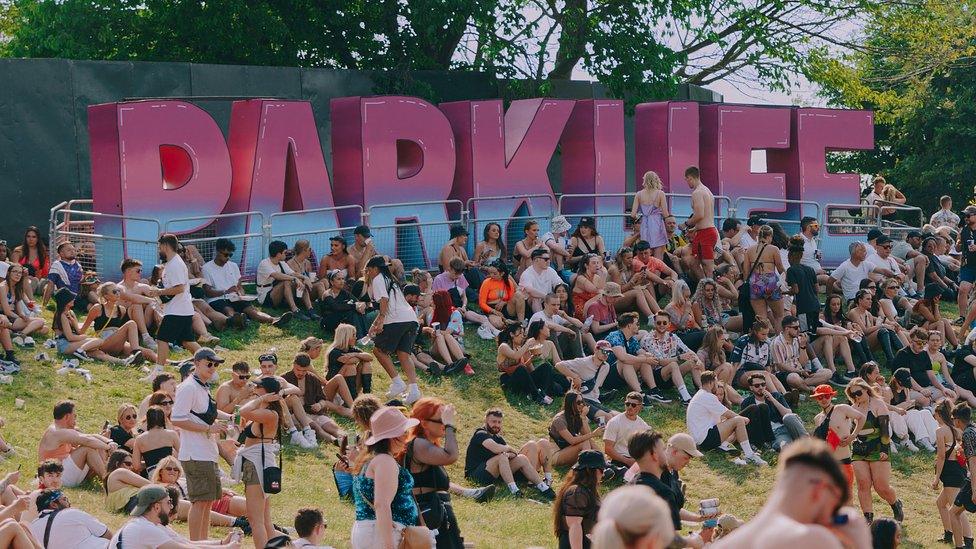
- Published14 November 2022

- Published25 July 2016
